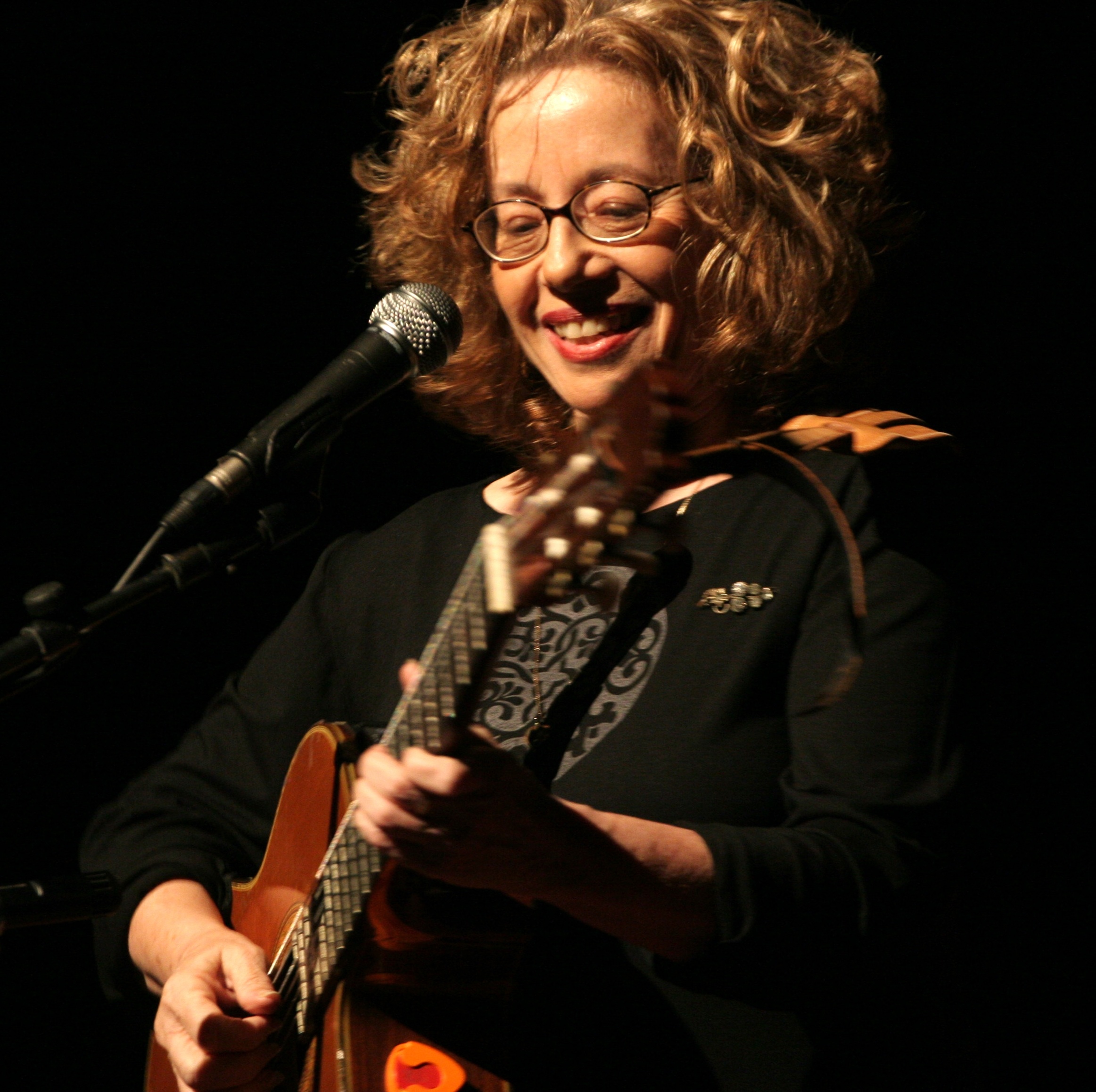By Gigi Yellen-Kohn , JTNews Correspondent
On the phone from her home in Ramat Eshkol, near Tel Aviv, Chava Alberstein says it’ll be a short interview: Her grandchildren are coming over for a hug before the legendary singer, now 64, flies off for her latest cross-planet tour. In Seattle, Alberstein plays Meany Hall on the University of Washington campus on Dec. 10 as part of the UW World Series.
“Basically, a concert is like a diary of your life,” says the award-winning recording artist whose 2011 calendar has already taken her to Helsinki, Berlin, London and Australia. Born in the village of Szczecin, Poland in 1947 and raised from the age of 4 in Israel, Alberstein’s concert diary bursts with languages and places and the stories that go with them. Yiddish, her first language, has moved audiences to tears at her sold-out concerts in Poland or Germany.
Alberstein works with what she calls “international subjects and issues that every folksinger must sing about: Family, getting older, parents and children, fighting for justice, foreign workers.”
Of just what “folk” does she see herself as a singer? “I hope human folk!” she exclaims with a laugh, and then elaborates. “There is, in my music, the Jewish people,” she says. “The language that I sing, even Hebrew, dead for almost 2,000 years, it’s a story by itself. And of course, the tragedies of the Jewish people in Europe, and the way the country was built.”
“Human, Jewish, Israeli,” is the identity Alberstein claims. The title track from her triple-platinum 1975 album Like a Wildflower is one of the songs she says she can’t do without in a concert; her 1990 album Songs of My Beloved Country is another concert staple. No doubt the Seattle show will include a children’s song or two. Her latest album, Yaldat Tevah/Nature’s Child is a children’s collection, like more than a dozen among her 50-plus recordings.
Renowned as a composer and performer, Alberstein has cited the American 1960s social-conscience folksingers Joan Baez and Pete Seeger as early inspirations for her career, launched as a Tel Aviv nightclub singer and nurtured while she was a soldier, entertaining fellow troops with voice and guitar. That career was already full of gold and platinum recordings and international concert acclaim when, in 1989, with the first intifada swirling, Alberstein sparked a controversy at home with her adaptation of the Passover song “Chad Gadya,” into a critique of occupation. A record store owner threw it out; a government official, citing freedom of expression, threw out Israel Radio’s effort to ban on the song.
Indeed, the UW World Series’ press release announces Alberstein’s program as “Songs of Protest, Peace and Love.” Maybe this is a way of enticing audiences who might otherwise avoid an Israeli performer? Or of heading off local protesters by reminding them that this Israeli herself has some issues with her government’s stands?
Thinking Alberstein was carrying dark thoughts about her country into a famous Bible story, I had this “protest” stance in mind as I listened, over and over, to the haunting song “HaSulam,” “The Ladder,” from her 2001 album Foreign Letters. Invoking the biblical image of Jacob’s ladder, Alberstein’s song tugs the heart. As a less-than-fluent but more-than-ignorant Hebrew listener, I heard the words aliyah and yeridah and immediately thought of the song as a cautionary tale for those who would move to Israel: “What’s it like?” the eager climbers ask. “Just wait, you’ll see for yourself,” the weary descenders reply. But it turns out that’s not what she had in mind at all.
“It’s very interesting, what you say,” says the songwriter. “I never thought of it.”
It’s the reader who creates the poem, she remembers a poet saying to her. What she had in mind, says Alberstein, was simply aging.
“For me, it’s like younger people asking older people,” she says. “Whatever you think, there is always something higher, but there is no such thing as the highest point. And as much as you go up, you have to go down.”
Of the land she still calls “My beloved country,” Alberstein says, “In every love there are moments of disappointment, fear, uncertainty. It’s still a love, and I thank God, every day, that when I travel the world I have a home to come home to.”
Whether it’s singing in English, Hebrew, Yiddish, or any number of other languages, Alberstein’s versatile voice is cabaret-wise, hopeful and sad and strong. Powerful as a solo stage presence, she is a notably collaborative artist. Her acclaimed album with the Klezmatics, The Well, featured her settings of 15 Yiddish poems; the songs, in turn, came from her film, Too Early to be Quiet, Too Late to Sing, for which she interviewed the writers she describes as “the last living Yiddish poets.”
Four decades into the physically demanding work of performing and touring, how does Chava Alberstein stay in shape?
She laughs. She likes to laugh.
“I don’t have any secret ways or formulas! Everybody’s writings books! I do believe that the love of art and the curiosity to art is giving me the power. I love very much music, art, books, painting. When you are in a difficult situation, I just think about a song. I go to my guitar, sing a little bit.
“It’s a mysterious thing,” she says. “I never get bored with my art.”
And maybe, she adds, she’s “just lucky.”
